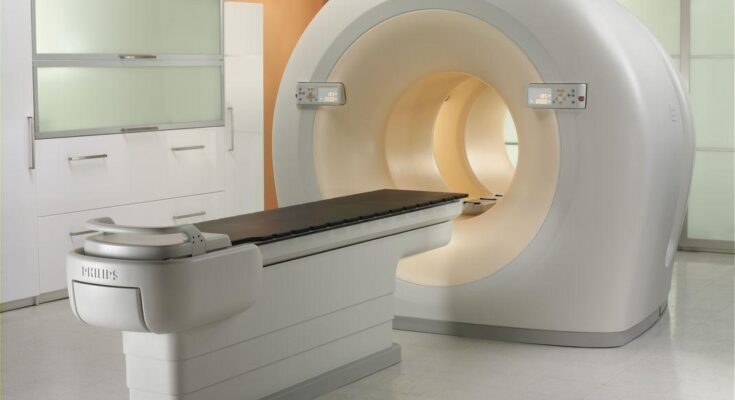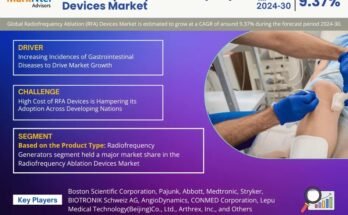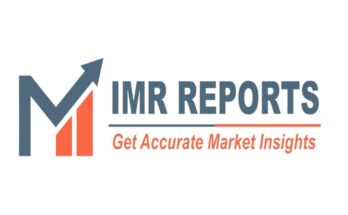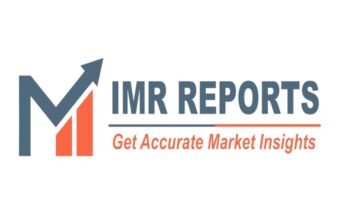In 2021, the market for PET Scanners worldwide was worth $ 1.10 billion US dollars. AMR Group projects that the market will reach US$ 1.74 billion by 2031, growing at a CAGR of 4.4 percent between 2022 and 2031.
Industry Overview
Positron emission tomography is also called as PET imaging or a PET scan, which is a type of nuclear medicine imaging. It evaluates organ and tissue functions by using small amounts of radioactive materials known as radiotracers or radiopharmaceuticals, a special camera, and a computer. It can detect disease at an early stage before other imaging tests by detecting changes at the cellular level. It can detect heart disease, cancer, gastrointestinal, endocrine, and neurological disorders, among others. Its radiotracers typically accumulate in tumors or areas of inflammation and bind to specific proteins in the body. F-18 fluorodeoxyglucose (FDG), is a common radiotracer which cancer cells absorbs. Furthermore, it can be detected during imaging in the area of examination. It has several advantages, including greater detail and a higher level of accuracy. Moreover, it also assists greater convenience for the patient undergoing PET-CT scan.
PET is a diagnostic imaging technique that employs radioactive substances to image tissues and organ function. Tracers are radioactive substances that indicate activity in the body. PET has applications in both medicine and science. It is widely used in oncology diagnosis and as a research tool to map human heart and brain function and aid in drug development. PET Scanners are becoming increasingly popular due to their numerous applications. PET scanners are commonly used as imaging biomarkers in clinical trials to determine the therapeutic response to novel cancer therapeutics. PET scanners for 18Fluorine-2-fluoro-2-deoxy-d-glucose (18F-FDG) are the most commonly used imaging technique in oncology. The most obvious advantage of PET is its ability to detect significant changes in glucose metabolism, or even complete shutoff of neoplastic cell metabolism in the early stages of treatment. This allows clinicians to detect the efficacy of an antineoplastic diagnosis much earlier than traditional radiological detection methods.
Market Dynamics
The global PET Scanners market is expected to grow due to the rise in demand for positron emission tomography (PET) scanners from radiopharmaceuticals. Furthermore, the increase in the prevalence of cancer acts as one of the major factors driving the growth are expected to boost demand for PET Scanners during the forthcoming years, allowing continuous support for cancer research from the public and private sectors in the form of funds and investments. The rise in the large number of research & development activities are been enhanced for the treatment options availability.
Technological advancements are spurring the PET Scanners market by enabling the development of further modern equipment that incorporate advanced technologies and components in the cancer tracking sensor. With modern lifestyle, the need for convenience and better infrastructure, there is a rise in demand for new products, which is driving innovation. The primary driver of the trend toward popularity of the hybrid imaging systems extend profitable opportunities. As a result, producers are likely to develop medical devices that people with the disease can carry covertly even in public places. Furthermore, stringent regulatory rules along with the high cost associated with the scanners are expected to obstruct are expected to stymie the market growth of PET Scanners.
COVID Impact
The COVID-19 had an impact on the market for positron emission tomography (PET) scanners in both positive and negative ways. The market was impacted by the decline in productivity in life science organisations during the pandemic. PET, on the other hand, emerged as a significant potential in the improvement and management of COVID-19, which accelerated the demand for positron emission tomography (PET) scanners. The market is expected to grow in the post-pandemic period due to its application in combating various other epidemics in the coming years. Siemens Healthineers announced FDA approval for the Biograph Vision Quadra PET/CT Scanner in March 2021. The product is intended for clinical use and translational research—the application of scientific research to the development of procedures and therapies that improve health outcomes.
Regional Trend
Geographically, North America dominated the PET Scanners market, accounting of total revenue in 2021. The primary factors driving the market in North America are the higher risks in patients with cardiovascular disease and cancer in the region. North America is increasing production, accounting for 42.2% of the global market for Positron Emission Tomography (PET) scanners. North America dominates the positron emission tomography industry due to the region’s high demand for precise diagnosis and technological advances in PET technology. According to the OECD, 6 PET scans were performed per 1000 population in 2018, with this figure expected to more than double in 2019.
Because of the region’s increased demand for advanced accelerometer sensor, The Asia-Pacific region is expected to have significant PET Scanners market potential. Furthermore, the industry is expected to benefit from improved healthcare infrastructure in addition to a rise in the number of medical providers in this region during the forecast period.
Competitive Landscape
Key players operating in the PET Scanners Market include Advanced Accelerator Applications, Agfa-Gevaert Group, Blue Earth Diagnostics Ltd., CellSight Technologies, Clarity Pharmaceuticals, CMR Naviscan, GE Healthcare, Hitachi Ltd., Koninklijke Phillips N.V., Mediso Ltd., MedX Holdings, Inc., Modus Medical Devices Inc., Neusoft Corporation, ONCOVISION, Perkin Elmer, Inc., PETsys Electronics SA, Positron Corporation, Qubiotech Health Intelligence S.L., Radiology Oncology Systems, RefleXion, Segamicorp, Shimadzu Corporation, Siemens Healthineers, Toshiba Corporation, and Yangzhou Kindsway Biotech Co. Ltd among others. In 2021, Wipro GE Healthcare inaugurated India’s first digital positron emission tomography and magnetic resonance imaging (PET MR) at the State Cancer Institute GMC, Guwahati, Assam.
Key USP’s-
The SIGNA PET/MR 2.0 from GE is India’s fourth and first digital PET MR scanner. GE Healthcare supported a collaboration between Quibim, Full Body Insight, and Oncovision in July 2021 to develop an innovative total-body PET/CT scanner for simultaneous whole-body imaging.
Market Segmentation
The PET Scanners market is divided into two Product Type, Full Ring PET Scanners and Partial Ring PET Scanners. Partial Ring PET Scanners dominates the type segment, with the largest market share in 2022. Its dominance over the forecast period is due to extensive manufacturing advancement. The PET Scanners market is divided into three segments based on Application, Cardiology, Neurology, Oncology, Orthopedics, Urology, Gastroenterology, and Others. The most dominant market in the technology segment is MEMS, which is the most useful technique used in PET Scanners, which are factors attributed to the segment’s dominant share.
The PET Scanners market is further subdivided into Hospitals, Clinics, Diagnostic Centers, and Other end users. Positron Corporation, a nuclear medicine PET imaging device system as well as clinical services provider, had ordered its first PET-CT system from Neusoft Medical Systems. The “Affinity PET-CT” system from Positron is on its way from China to its validation partner in the United States.
By Product Type
- Full Ring PET Scanners
- Full Ring PET Scanners
By Application
- Cardiology
- Neurology
- Oncology
- Orthopedics
- Urology
- Gastroenterology
By End User
- Hospitals
- Clinics
- Diagnostic Centers
- Other End Users
Global Pet Scanners Market: Regional Analysis
All the regional segmentation has been studied based on recent and future trends, and the market is forecasted throughout the prediction period. The countries covered in the regional analysis of the Global Pet Scanners market report are U.S., Canada, and Mexico in North America, Germany, France, U.K., Russia, Italy, Spain, Turkey, Netherlands, Switzerland, Belgium, and Rest of Europe in Europe, Singapore, Malaysia, Australia, Thailand, Indonesia, Philippines, China, Japan, India, South Korea, Rest of Asia-Pacific (APAC) in the Asia-Pacific (APAC), Saudi Arabia, U.A.E, South Africa, Egypt, Israel, Rest of Middle East and Africa (MEA) as a part of Middle East and Africa (MEA), and Argentina, Brazil, and Rest of South America as part of South America.
Key Questions Answered in the Report:
- What will be the development pace of market? What is the growth rate of the global market?
- Who are the key manufacturers in the market space? Who are the world’s leading manufacturers?
- What are sales, revenue, and price analysis of the top manufacturers of market?
- Who are the distributors, traders, and dealers of market? What are the key factors driving the Global market?
- What are the market opportunities and threats faced by the vendors in the industries?
- What are deals, incomes, and value examinations by types and applications of the market?
- What are the primary factors driving market?
- What are the market’s advantages, disadvantages, and risks, as well as an overview of the market?
- Who are the Top Manufacturers in the Market in Terms of Sales, Revenue, and Price Analysis?
- Analysis of Industry Revenue, Sales, and Pricing, what is the difference between Equipment by region, type, and application?




